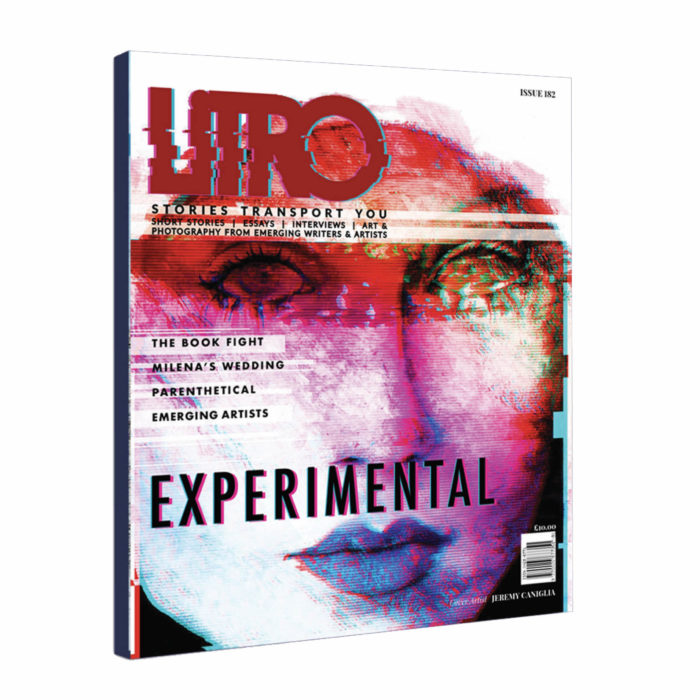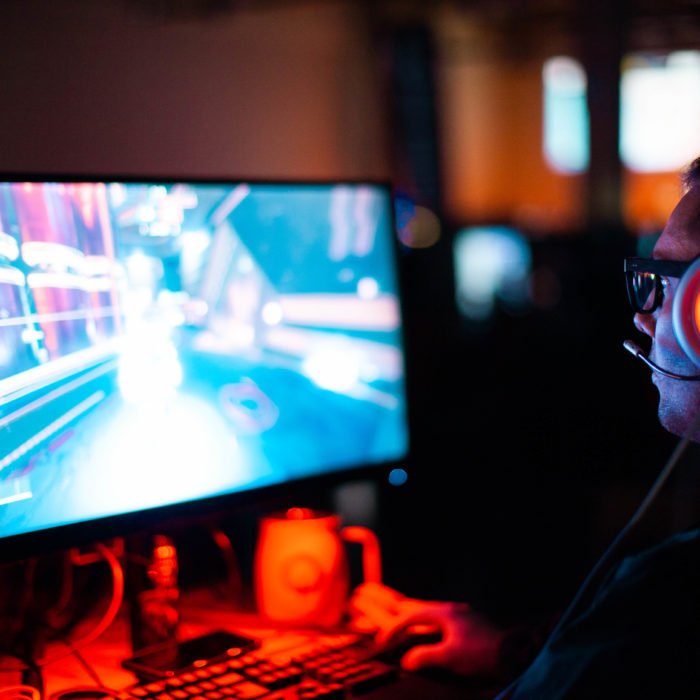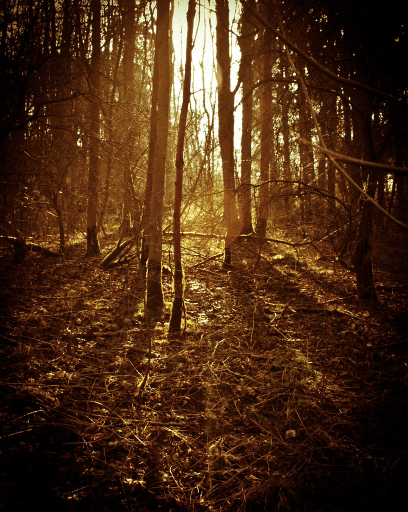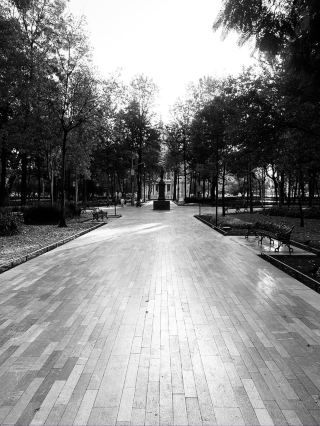You have no items in your cart. Want to get some nice things?
Go shopping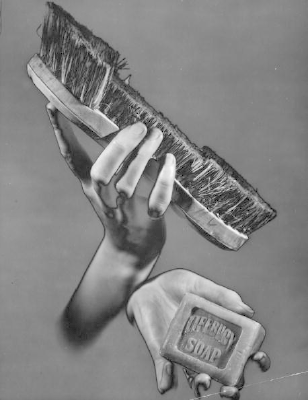
From the age of nine, my life has been severely impacted by obsessive-compulsive disorder. Almost twenty years later, I can still remember my first intrusive thought as clear as the hymnals from the tone-deaf choir. My family attended our usual April mass at the local basilica, and all I wanted to do was go home and re-watch Space Jam. Waiting outside the bathroom after mass, I saw a woman carrying a baby, both covered with a sheen of baby powder that flew through the air and got up my nose. I watched in horror as she handled a dirty, discarded diaper with her bare hands. The entire ride home, I thought about the scum of the fecal bundle, the chemicals in baby powder. What if either could travel on the air, and that somehow make me sick?
Once home, I did not watch the movie, my interest discarded as my itchy Sunday best. I spent the better part of my night bent over the sick, scrubbing my hands and face raw with the Dial soap by the sink. My mind was occupied with germs and the damage they could do.
This was the first, but not the last time I asked myself, “What if I die?”
Hindsight has not given me perspective on this event, as my phobias have only multiplied. Like many OCD patients, contamination and illness – and the compulsions I do to alleviate my fears – are a constant of my mental health condition. While OCD is frequently characterized as a handwashing disorder or an affinity for neatness, there is more to OCD than soap and order. According to the National Institute of Mental Health, OCD is associated with “uncontrollable, reoccurring thoughts,” better known as “obsessions,” and “behaviors that [the patients] feel the urge to repeat over and over,” also called “compulsions.” The point of a compulsion is the alleviate the panic of the intrusive thoughts. For example, a person was exposed to something they deem to be contaminated. The compulsion that follows is to decontaminate with the hope of not only removing the germs but calming the distress. The OCD thought may vary from “I will get sick if I do not wash my hands,” to “I could die if I don’t wash my hands. Or someone else will die. What if I make someone else sick? If I don’t wash my hands, someone else will die.”
The cycle continues as the mind expands outward to the grab the hem of every fallacy possible. OCD will prey on any number of fears, from fear of causing harm, scrupulosity, relationship OCD, homosexual OCD, and the list goes on. Psych Central notes that among the many themes OCD can adopt, contamination and hypochondria are among the most common. While cleanliness can be a factor, they say, “People with contamination obsessions try to avoid what the considered potential … settings associated with germs.”
On the daily, I am guilty of giving into contamination OCD; frequent hand washing has left me with lizard hands, I will not touch public surfaces or even shake a loved one’s hand. I have endless visions of contracting meningitis on the bus, or E. coli from a fast-food burger. I’ve known illness my whole life; I watched my mother nearly die from a hemorrhagic stroke at the age of four. The years that followed exposed me to illness, and I feared the unpredictable nature of deadly things. My world was torturous and inconvenient, but simple. I learned about germs for the sole purpose of avoidance.
Then, a new virus spread swift as a psalm.
Being cautious was no longer enough.
The novel coronavirus, also known as COVID-19, has reshaped the lives of people all over the globe. The local news turntable spits out the same tracks of “six feet apart” and “wear a mask outside,” outlining cancellations and unemployment rates and stimulus checks that are not enough to pay the bills. There is a lot of talk, articles on the impact of social distancing and their impact on medical conditions such as depression and anxiety. And while these points should not be glossed over, the recent pandemic poses a unique threat to OCD patients.
As stated in a trending MSN Global News article, the coronavirus outbreak is “a worst-case scenario.”
While my fear of germs and contamination is not a unique OCD experience, it is one that that thrives on my overwhelming fear of uncertainty. Psych Central blogger Arash Emamzadeh says that, “people with obsessive-compulsive disorder find it more difficult to accept the reality of life’s unpredictability” due to a lack of or desire for control.
Dying as the result of an illness is one of my top OCD related fears, second only to losing my life in a natural disaster and being sent to prison and dying alone inside a cell. Speaking for myself, when a fear becomes overwhelming – no matter how irrational – I begin to dictate my life around the inevitability of my own demise. As much as I’ve given my life to the obsessive-compulsive cause, I am neither prepared nor equipped to face the dreaded Corona.
I am not just scared or living my worst fear; I am reliving the nightmare of the diaper on a larger, more massive scale.
The diaper that once ruined my nine-year-old life was never just a diaper. It was always a symbol; an image stuck in my mind long after I’d left the church, long after I’d gone home, long after I’d washed the invisible layer of filth from my hands and kept scrubbing anyways. That diaper is now several – thousands if not millions of diapers holding a host of excrement and paranoia. The diapers are stacked upon each other, and they are on fire; a shrill, deadly flame. I am being forced to dive face first into the pit even though it’s the last thing I wanted to do.
This goes beyond a simple fear because the concept of “fear” can be conceptualized into something rational and true. For an OCD patient, this is trauma in its rawest, most infectious form.
The fear of the illness, the “what if” questions that follow are more harrowing than washing my hands or wearing plastic gloves. The fear of contracting the illness is a constant beating to the chest, a pounding in the walls of lung – scarier in some ways for me than the illness itself.
Deep inside my brain, beneath the misfiring neurons and serotonin syndrome, logic is squatting in a corner, trying to scratch its way back into my lobes. I know I am being cautious, wearing masks and washing my hands, staying far away from others and bathing an unreasonable four times a day. Despite my zip code being the county “hot spot,” due in part to the local international airport, I know I’ve taken as many precautions as a person with pre-existing physical conditions possibly can.
Logic does not prevail in convincing me to follow its little gospel because being cautious brings me no peace, for more reasons than one.
In addition to the overarching threat of the virus comes an additional hurdle; in protecting myself from it, I am invariably worsening my OCD. While there are few viable treatments for obsessive-compulsive disorder, according to the International OCD Foundation, Exposure and Response Prevention is a useful tool in the management of contamination OCD. This type of behavior therapy entails exposing a patient to contaminants they fear and training the brain to accept the exposure without giving into a compulsion, such as hand washing, checking yourself for illness, or ruminating and researching the contaminant in question. In the face of COVID19, where constant hand washing and diligence is essential to prevent exposure and spread, this is a direct defiance of a potential treatment plan.
In the long term, this can lead to a relapse or “spike” in OCD behaviors.
Obsessive-compulsive disorder is often trivialized, reduced to the stereotype of using lots of soap and alphabetizing cereal boxes. Memes and Facebook posts will plunk a blue gumball in a sea of yellow and rashly declare, “Like and share if this makes you feel OCD!” I’ve heard it from the joking mouths of friends, well-meaning but misinformed teachers who think having an organized notebook surmises the experience of a complex psychological condition.
On a normal day, this stigma causes harm by falsifying the struggle that comes with this particular brain disorder. However, I think this underplaying of OCD symptoms is why there isn’t much conversation around the impact of a pandemic on a compulsion driven anxiety disorder. Especially when it’s worth noting the effect of OCD on its own is sobering. According to a study done by the Karolinska Institutet of Sweden, “OCD patients are 10 times more likely to commit suicide,” and are highly likely to have previous suicide attempts. I believe this is due, in part, to the persistence and even resistance OCD can be to treatment, especially in times of duress.
With the uncertainty of the year growing as society grinds to a halt, anxiety and depression are becoming more common among the general population. However, things will eventually find “normal” again. Vaccines will be created, Disney World will reopen, and our country will return to their old lives.
But me? This will be another diaper on the pile, the one I forget until I become short of breath one night after taking the bus to the airport. OCD will be in my ear; it’s not an illness, I fear. It is my God I will stay up and wash myself, scrubbing the skin until its sore and exposed and red. And then I’ll wash it again. I’ll wash until there’s no more to wash, all the while wondering, “if I don’t do this, what if I die?”
Well, what if I live?
I’m uncertain which alternative is more sinister.

About Anastasia Jill
Anastasia Jill is a queer writer living in the Southeast United States. She has been nominated for Best of the Net and Best Small Fiction Anthology, as well as several other honors. Her work has been featured with Poets.org, Lunch Ticket, apt, Minola Review, Gertrude Press, Into the Void, and more.

